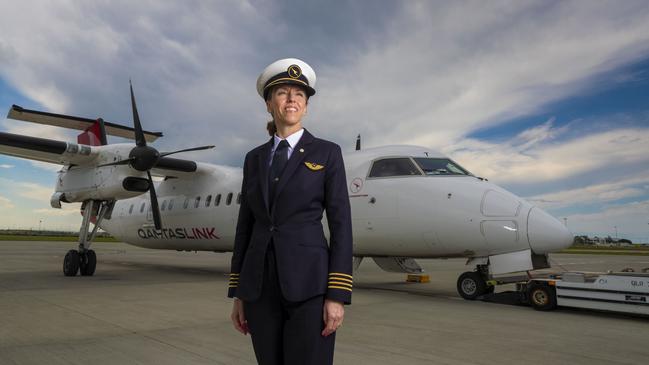Pilots blast airspace management as ‘critically deficient’ amid air traffic controller sickies
Pilots claim airspace management in Australia has become ‘critically deficient’ due to a shortage of air traffic controllers.

Pilots say airspace management in Australia has become critically deficient due to all-too-frequent staff shortages within air traffic control that have them flying blind.
A survey of 5500 members by the Australian Federation of Air Pilots found almost a third were experiencing delays several times a month because of airspace restrictions.
On Wednesday flight movements were again slowed down across the eastern states, due to unplanned leave among air traffic controllers in Brisbane and Sydney.
AFAP president Louise Pole said the survey showed air traffic delays were becoming more frequent, lengthy and severe and often went undocumented.
She said the increasing reliance on contingency measures such as “traffic information broadcast by aircraft” (TIBA) raised significant risks and concerns about Airservices Australia’s ability to provide adequate air traffic control.
“The AFAP calls on Airservices Australia to immediately put robust procedures in place to manage the airspace with the current staffing levels while it continues to increase air traffic controller numbers,” said Captain Pole.
“We also want to see notifications of foreseeable delays due to staffing issues published ahead of flights becoming airborne so that pilots can plan for extra holding or extra flight time.”

The Australian and International Pilots Association has the same concerns, with its members also reporting problems were becoming more frequent and harder to manage.
AIPA president Tony Lucas said closed airspace, or TIBA, increased the operational complexity of a pilot’s work environment.
In most instances pilots were forced to fly around uncontrolled airspace, which added significantly to fuel burn and fatigue.
“I think it’s an issue Airservices has been aware of for a considerable amount of time, and if anything it’s getting worse,” Captain Lucas said.
“We keep hearing from Airservices they have adequate numbers of air traffic controllers but that’s clearly not the case when they keep closing airspace.”
He said the use of TIBA, where pilots were left to self-separate by broadcasting their whereabouts in the absence of air traffic control, was once extremely rare.
“Historically TIBA never happened. I would expect that in a first-world country TIBA would only be utilised as a result of a major system outage or the evacuation of an air traffic control centre,” Captain Lucas said. “To use it as a regular tool is a very poor indictment on where Airservices finds itself at the moment.”
Airlines and airports are also frustrated by the air traffic control issues, with Qantas regularly informing customers that staff shortages in ATC is the reason for flight delays or cancellations.
A spokeswoman for Airservices said the federal government-owned organisation was continuing to invest in its workforce across the country including by recruiting and training new air traffic controllers nationwide.
“Safety is our No.1 remit,” said the spokeswoman.
“Importantly, Airservices never ‘closes’ airspace. We simply vary our service offerings if we experience short-term unplanned ATC leave, by using internationally standard and safe aviation procedures.”
She said these procedures, including TIBA, meant pilots were still provided with a flight information service, a search and rescue alerting service and safety alerting service. “An ATC will monitor the frequency the pilots are operating on and surveil the airspace,” said the spokeswoman.
More than 50 trainees were being recruited in the next three months, with a total of 80 additional air traffic controllers due in the next financial year, she added. “We are also continuing to work closely with our customer airlines and airports to minimise passenger and pilot disruption,” she said.







To join the conversation, please log in. Don't have an account? Register
Join the conversation, you are commenting as Logout